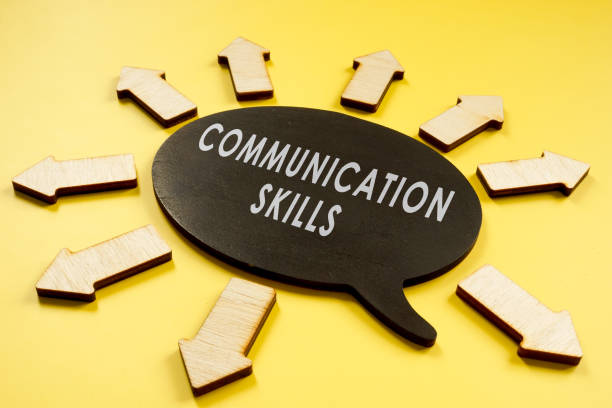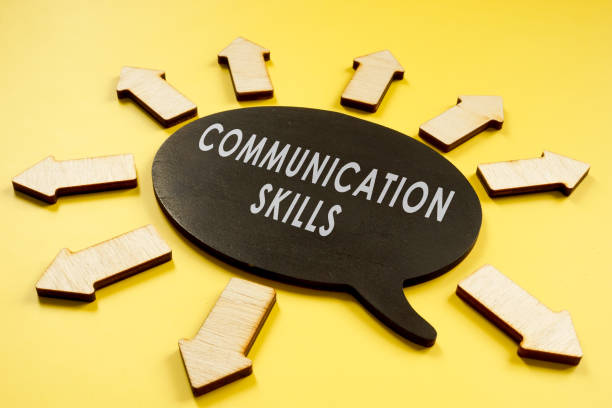
The ability to express opinions, thoughts, and ideas is an art. It requires a good command of communication skills, which are essential for students to excel in academics, social life, and future careers.
This article gives you tips and strategies to enhance communication skills.
Tip 1: Practice Active Listening
Listening is as important as talking. While having a conversation with other people, attentive listening is quite important. It helps in understanding others’ views and responding appropriately.
To improve your listening skills, do not be distracted while the person is talking, do not use your phone, give the speaker your undivided attention, nod your head at regular intervals, avoid interrupting, and do not jump to conclusions.
Tip 2: Expand Vocabulary and Clarity
The wide knowledge about words, synonyms and antonyms helps in understanding. Additionally, the use of appropriate and rich words leaves a good impression on the listeners and readers.
Before talking or writing, be clear with your thoughts. This will help include only useful and relevant information. Using unnecessary words or flowery phrases leaves the reader and listener confused. Therefore, using precise and concise language is essential for effective communication.
Tip 3: Improve Nonverbal Communication
Nonverbal communication includes body language, facial expressions, eye contact, posture and gestures. These indirectly convey a lot of information. Nonverbal communication is mainly used to express emotions, convey attitude, and manage impressions.
Nonverbal cues indicate internal thoughts and feelings. Therefore, maintaining eye contact while speaking, sitting erect, using minimal gestures, and having a decent smile on your face show confident behavior and warmth and help build connections in personal and professional interactions.
Tip 4: Engage in Public Speaking and Group Discussions
Speaking in front of a large audience improves verbal and nonverbal communication. It helps in organizing thoughts and using appropriate language. It improves articulation and clarity.
Group discussions enhance active listening skills and collaboration, which are necessary for interpersonal communication. In conclusion, participating in debates, group discussions, and presentations boosts confidence and removes stage fright. They offer a sense of self-assurance, build self-confidence and increase logical thinking capabilities.
Tip 5: Read and Write Regularly
Reading is one of the most powerful ways to improve communication. It offers exposure to new vocabulary and information. Reading aloud helps in improving fluency, comprehension and pronunciation skills.
Writing is helpful in expressing inner feelings and ideas in a clear written form. It is also beneficial for logically organizing information and accurately conveying messages. Consistent reading and writing elevates language proficiency.
Tip 6: Develop Confidence and Overcome Fear
Speaking with confidence is necessary to express thoughts and ideas clearly. Fear while speaking, especially in public settings, displays a lack of confidence and hampers clarity.
To overcome this fear, practice speaking confidently in front of a mirror or with friends. Join debate clubs and take part in extracurricular activities like extempore. Practice deep breathing exercises, visualization, and positive self-talk to manage anxiety and overcome shyness.
Tip 7: Use Technology and Digital Communication Wisely
Proper application of technology enhances communication through facilitating quick, clear, and effective interaction. Select an appropriate platform, use a professional tone, and be careful with words. Steer clear of using slang and unwanted emojis to avert misunderstandings.
Digital tools have enabled remote work and worldwide connectivity. Intelligent usage of technology enhances personal as well as professional communication in today’s digital era.
Tip 8: Seek Constructive Feedback
The feedback from teachers, parents, and peers is crucial for improvement. Feedback points out strengths and weaknesses. This gives an opportunity to improve on writing and reading skills. Accepting criticism with a positive attitude leads to continuous improvement.
Constructive criticism offers valuable insights that boost confidence and make communication efficient, effective, clear and impactful over time. The actionable feedback encourages students and creates a positive learning environment.
Tip 9: Engage in Role-Playing and Real-Life Conversations
Role-playing offers a platform for students to practice different scenarios and understand diverse perspectives. Activities like debates, interviews, and group discussions boost confidence, develop critical thinking, enhances adaptability and improve verbal and nonverbal communication.
Real-life conversations provide practical experience in active listening, understanding others’ views and forming responses. Over time, these interactions reduce hesitation and promote efficient communication.
Tip 10: Stay Patient and Keep Practicing
Communication enhancement is a gradual process. It needs constant effort and continuous practice through real-life conversations, public speaking, and group discussions. Staying patient helps in not giving up during setbacks and remaining motivated.
Setting small practical goals makes the process easy and manageable. Eventually, you will witness noticeable improvements in confidence and clarity. To gain mastery over communication, keep practicing and stay committed.
Overcoming Common Communication Barriers
Some common communication barriers that students face are
- Stage fright
- Social anxiety
- Language difficulties
- Distractions
- Lack of clarity
- Misunderstandings
Parents and educators can play a vital role in helping students overcome these obstacles.
Practical Strategies for Parents and Teachers to Support Students
The support of students and teachers is vital to enhance communication skills in students. Here are some practical strategies:
Encouraging Open Conversations at Home and School
Parents must have open-ended conversations at home to build trust and make children comfortable expressing their thoughts and feelings. It develops a strong relationship and enhances listening skills and empathy. Teachers must promote open communication in the classroom through discussion on various topics. This improves clarity and enhances knowledge on various topics.
Providing Opportunities for Public Speaking
Hold debates, group discussions and extempore competitions, and encourage students to take part in them. These kinds of activities remove stage fright, improve clarity of thoughts and give exposure.
Teaching the Importance of Listening and Empathy
The skills of listening and empathy are essential for building meaningful relationships. Active listening shows respect, while empathy helps in connecting with people’s feelings.
Helping Students Overcome Communication Anxiety
To overcome communication anxiety, children must be encouraged to practice deep breathing, take part in public speaking and engage in conversations. Create a safe learning space where mistakes are corrected and not severely criticized.
Conclusion
Effective communication is a crucial life skill that greatly impacts the personal and professional success of students. Students can elevate their communication skills by following the above-discussed strategies and consistent implementation. We, at New Horizon International School, are committed to enhancing holistic development in students with more emphasis on inculcating essential life skills.
Frequently Asked Questions (FAQs)
How can Students Improve Communication Skills Quickly?
Students can quickly improve communication skills through participating in public speaking, engaging in group discussion, regular reading and writing, watching shows, seeking feedback, staying patient, and consistent practice.
What are some Fun Activities to Enhance Communication Skills?
Role-playing, debates, charades, group discussions, narrating stories, and team-building activities are some fun ways to enhance communication skills.
How do I Help a Shy Student Become a Confident Speaker?
To help a shy student become confident, provide constructive feedback, correct mistakes, create a safe learning space, praise efforts, encourage regular practice, and build confidence through positive reinforcement.
What is the Best Way to Develop Written and Verbal Communication Skills?
For written skills, start with journaling, seek feedback, and write regularly. To develop verbal communication skills, engage in conversations, listen attentively, join clubs, and practice public speaking.



